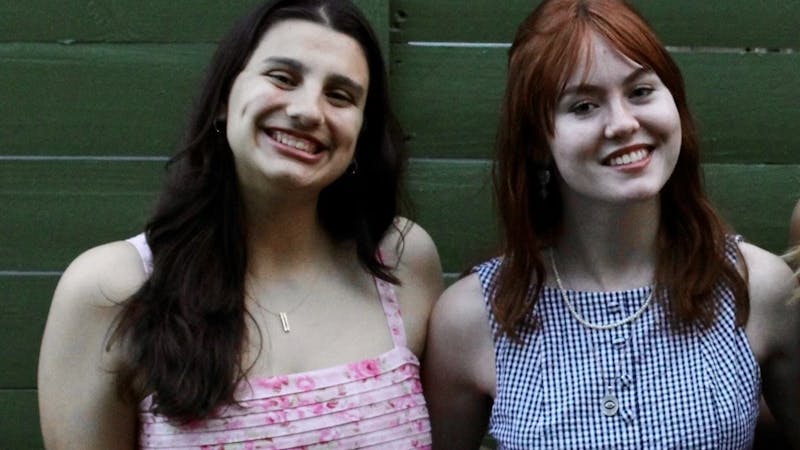LEAP is not what’s best for Rice

Intention and purpose are two very powerful things. Unfortunately, these two values are missing from the Student Association’s Lifetime Enrichment Activities Program proposal. LEAP is a proposal to replace the current one-credit hour Lifetime Physical Activity Program graduation requirement with a new one-credit hour LEAP requirement. To fulfill LEAP, students can choose a one-credit hour course from any of the following categories: cultural enrichment, physical activity, mental well-being, financial literacy, leadership and civic engagement. The rationale provided by the students proposing the change, which if passed by the SA will need to be approved by the Committee for Undergraduate Curriculum, is that such a change would “cultivate a diverse community of learning and discovery that produces leaders across the spectrum of human endeavor.” The resolution for the proposal also includes the statistic that “more than 70 percent of Rice students are involved in some kind of athletic activity.” Finally, they conclude by saying that Rice’s current requirements could be improved by giving students more autonomy.
Despite the rationales provided, we find that the proposal lacks intention and purpose. Sure, LEAP can allow students more autonomy, and yes, many students are already active, but at the end of the day, what necessitates changing a tried and true benefit to the student body like the LPAP credit? Are these rationales strong enough to change our university’s values? By setting specific undergraduate graduation requirements, Rice is able to showcase its values and priorities. By replacing the LPAP, we are saying that physical and mental well-being are not as important to the Rice administration and students as the new classes that LEAP would provide. By submitting a proposal that is only loosely supported by 63.09 percent of the student body (according to the Survey of All Students), LEAP proponents show that they don’t value the opinions of the 31.19 percent who would like to keep the LPAP. To change university values, we must have more consensus. The changing of university values requires an extensive, campus-wide discussion — which has yet to occur.
Additionally, the Survey of All Students, one of the methods used to gather student feedback, had several drawbacks. The statements following "Support" and "Oppose" had confusing rhetoric that was rather harsh. To say “oppose” feels like you've closed the door on further discussion, and saying “support” could mean that you support general graduation requirement expansion. As a result, the Survey of All Student results may be skewed.
Many students over the course of the proposal introduction have questioned whether their favorite LPAPs would be defunded and canceled. University funds will be diverted toward creating new LEAP classes. If the LPAP is no longer a required course and new courses have to be developed, the number of LPAP classes must decrease, hurting students’ ability to learn.
An idea that was not included in the survey but was reflected in some colleges and in many of the “other” responses to the SAS is a best-of-both-worlds approach: to keep the LPAP as it is and add these new classes as electives that students are free to sign up for. This option allows Rice to maintain its commitment to physical activity while still giving students the ability to take classes in the subjects proposed by LEAP, a compromise many can get behind. The current legislation in the SA suggests a complete replacement of LPAP with LEAP, but a compromise along these lines might be the best way to move forward.
At the end of the day, we have not had enough debate or discussion on this issue. The ideas behind LEAP are interesting and could be great, but the specific proposal at hand is not the best for Rice. There has not been enough debate or compromise within Senate, within residential colleges, or across campus. If the SA wants to create these sorts of changes, their timelines must allow for adequate debate and discussion. The sentiment expressed by SA President Justin Onwenu that long, heated debates during Senate won’t be productive is flawed. Ultimately, these discussions reveal the true strengths and flaws of initiatives, and can serve to make powerful changes in the future. To all students: We encourage you to reach out to your senators and presidents before Nov. 27 to either give your opinion on how to vote or state what you’d like to see with the LEAP resolution.
Ariana Engles is a sophomore and the Lovett College senator.
John Michael Austin is a junior and the Baker College senator.
More from The Rice Thresher

Letter from the editors’ desk: Journalism is a community practice
First of all, we want to thank y’all for picking up the paper, reading our stories and answering our questions all the time. We want to inform students, staff and the community about what is happening at Rice, and the only way to do that is by hearing from you. Talk to us, email us, submit tips on our website, write an opinion piece; however you want to communicate, we always want to know what matters to you.
Keeping Rice culture of care alive is a shared responsibility
The semester has barely begun, and this year’s Dis-Orientation saw four times as many medical transports as previous years. That number should give everyone pause.
Letter from the Provost: Welcome and good luck, new Owls
Welcome to Rice! We look forward to guiding you as you experience this special place that encourages students to grow in and outside of the classroom. The culture on campus is built to support you through your successes and challenges as you achieve existing goals and realize new ones. That’s the beauty of Rice — you will be exposed to new opportunities that you didn’t even know were possible.


Please note All comments are eligible for publication by The Rice Thresher.